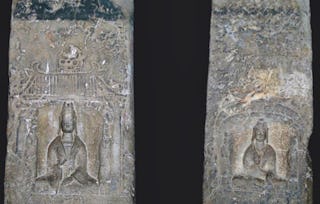This sequence of four courses will propose a multi-disciplinary approach to the study of Chinese cultural history conceived of as a succession of modes of rationality (philosophical, bureaucratic, and economic). The focus will be on the moments of paradigm shift from one mode of rationality to another. For each of these moments, cultural facts and artifacts—thought, literature, ritual—will be examined in relationship to changing social, political, and economic systems.

Structuring Values in Modern China

Structuring Values in Modern China

Instructor: Prof. John Lagerwey
5,218 already enrolled
Included with
36 reviews
Skills you'll gain
Details to know

Add to your LinkedIn profile
39 assignments
See how employees at top companies are mastering in-demand skills

There are 7 modules in this course
This module explains how science, the market, and the nation became the new structuring values of the intellectual elite in the 20th century and how this led to the destruction of traditional religions; how these religions resisted and incorporated the new values.
What's included
7 videos7 assignments
This module introduces how the traditional Chinese vision of the role of government militated against the development of market-based economics, how the science of economics came into being in 20th century China and how this profoundly modified the practice of government and the way human subjectivity is understood.
What's included
2 videos2 assignments
We are going to learn the distinction between science and scientism, how scientism was used to justify the rejection of traditional religions, and how a more accurate assessment of the nature of science re-opens a space for more traditional moral and religious concerns.
What's included
4 videos4 assignments
This module is about the role of gender bias among the intellectual elite in the 20th century and how various religious traditions, by contrast, promoted women’s empowerment over against the “public patriarchy”.
What's included
7 videos7 assignments
This module presents how lay religious movements, especially spirit writing groups, responded to the crisis of Chinese society in the 19th and 20th centuries; how groups like the Yiguandao went from political repression to acceptance; and how charity in modern China is inseparable from the history of these lay organizations.
What's included
6 videos6 assignments
This module states the power of attraction of charismatic Protestantism today, especially for women, its primarily indigenous origins and its similarities with other forms of popular religion.
What's included
4 videos4 assignments
This module indicates the differences between Chinese and Western dualism and how they were impacted by their different writing systems; the meaning of the terms “patriarchal” and “humanistic” as applied to Chinese culture; how Chinese elite and popular culture were separated by a wide gap that has not yet been closed.
What's included
9 videos9 assignments
Instructor

Offered by
Explore more from History
 Status: Preview
Status: PreviewThe Chinese University of Hong Kong
 Status: Preview
Status: PreviewThe Chinese University of Hong Kong
 Status: Preview
Status: PreviewThe Chinese University of Hong Kong
 Status: Preview
Status: PreviewNanjing University
Why people choose Coursera for their career

Felipe M.

Jennifer J.

Larry W.

Chaitanya A.
Learner reviews
- 5 stars
77.77%
- 4 stars
19.44%
- 3 stars
0%
- 2 stars
2.77%
- 1 star
0%
Showing 3 of 36
Reviewed on May 26, 2021
I absolutely loved this course, it is really important to approach to the philosophical and religious structures.
Reviewed on Apr 27, 2020
A fascinating multidisciplinary look at Chinese History and Culture.
Reviewed on Apr 19, 2021
A fascinating journey through the influences of Daoism and Buddhism on China's past and present.

Open new doors with Coursera Plus
Unlimited access to 10,000+ world-class courses, hands-on projects, and job-ready certificate programs - all included in your subscription
Advance your career with an online degree
Earn a degree from world-class universities - 100% online
Join over 3,400 global companies that choose Coursera for Business
Upskill your employees to excel in the digital economy
Frequently asked questions
To access the course materials, assignments and to earn a Certificate, you will need to purchase the Certificate experience when you enroll in a course. You can try a Free Trial instead, or apply for Financial Aid. The course may offer 'Full Course, No Certificate' instead. This option lets you see all course materials, submit required assessments, and get a final grade. This also means that you will not be able to purchase a Certificate experience.
When you purchase a Certificate you get access to all course materials, including graded assignments. Upon completing the course, your electronic Certificate will be added to your Accomplishments page - from there, you can print your Certificate or add it to your LinkedIn profile.
Yes. In select learning programs, you can apply for financial aid or a scholarship if you can’t afford the enrollment fee. If fin aid or scholarship is available for your learning program selection, you’ll find a link to apply on the description page.
More questions
Financial aid available,

